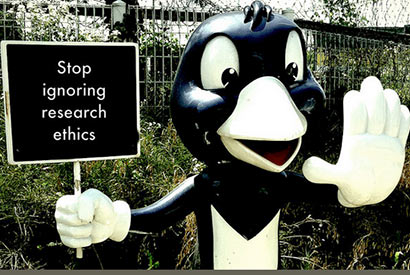Can teaching ethics substitute for consistently enforcing it? Levi Gadye, a graduate student in neuroscience, explores this question in a blog post for the graduate-student magazine Berkeley Science Review.
“I’m part of the first cohort of graduate students required to take a refresher course in responsible conduct in research,” he writes. “It’s curious how the NIH thinks nearly ripe Ph.Ds need a refresher” in research ethics.
“Young scientists have every reason to be skeptical that mere classroom training in ethics is sufficient for upholding the rigor of the scientific method,” writes Gadye. “It’s time for the leaders of science, from faculty to universities to the NIH, to put their money where their mouths are, and act to prevent and fight research misconduct.”
He reviews some recent cases of research misconduct (and accusations of misconduct) in science, and notes that if grad students, postdocs or faculty are committing scientific misconduct, “it is not occurring in a vacuum…. We must incentivize honesty, and deter misconduct, in the most transparent ways possible.”
Read Levi Gadye’s blogpost on the Berkeley Science Review website.
